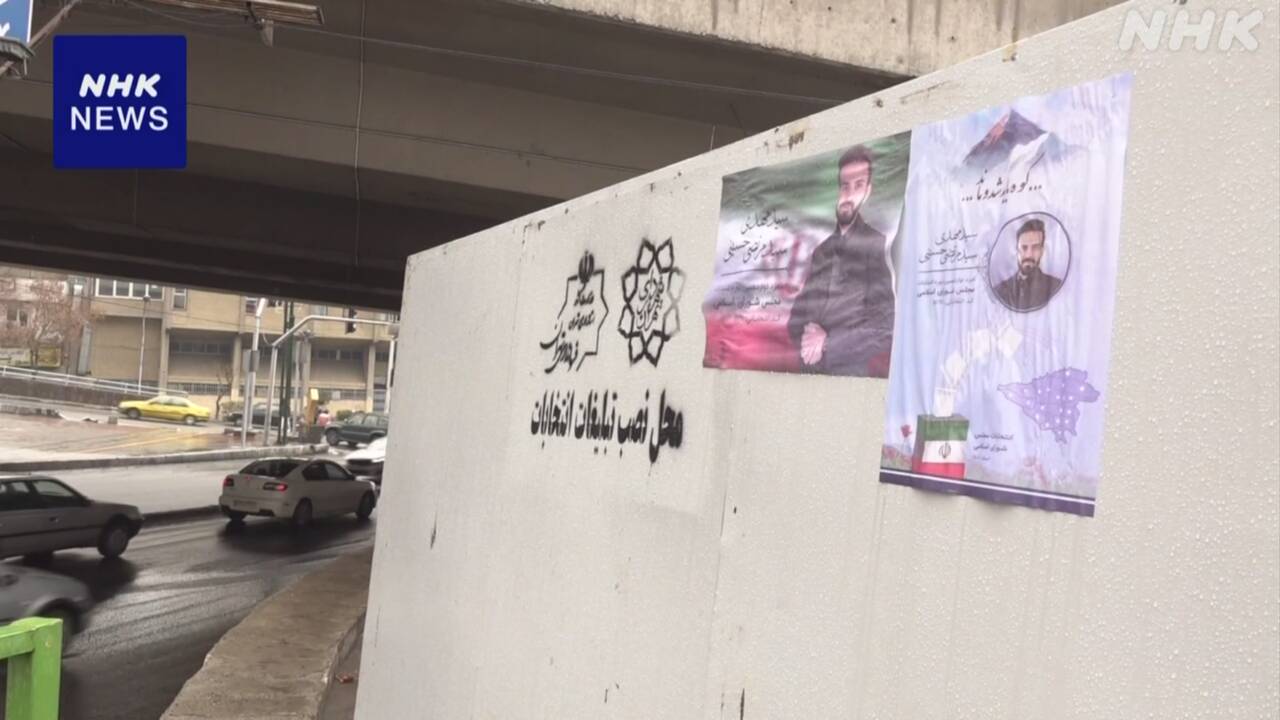Election campaigns have begun for parliamentary elections to be held in Iran next month.
As the conflict with the West deepens over issues such as Ukraine and the situation in the Palestinian Gaza Strip, the focus is on whether hard-line conservatives who support the government's foreign and military policies will further expand their influence.
Iran's parliamentary elections, which will be held on the 1st of next month, began on the 22nd for 290 seats.
Iran has been accused by the West of providing drones to Russia, which continues its military invasion of Ukraine, but this has been denied and the conflict has deepened.
In addition, Iran is backed by the Palestinian Islamic organization Hamas, and is in fierce conflict with Israel, which continues its military operations in the Gaza Strip, and with the United States, which provides military support.
The focus of this election is whether the hard-line conservative factions that support the foreign and military policies of the Raisi government, which is at odds with the West, and hold a majority in parliament, will further expand their influence.
On the other hand, the organization that conducts the preliminary screening of candidacy says that approximately one-quarter of those who received applications were disqualified in the screening, resulting in approximately 15,000 candidates.
Among those disqualified are politicians who criticized the government when demonstrations spread over the way people wear headscarves, known as ``hejab,'' in 2019. There are voices calling for a boycott, and the turnout will also be closely watched.
Many people have no expectations for the election.
Regarding this parliamentary election, while many people in the capital Tehran said that it was an important election, there were also many people who did not vote.
Among them, a 57-year-old woman said, ``If she doesn't vote, she will be leaving things that concern her to others to do.'' She chose a candidate who knew that the country was based on the teachings of Islam. "I'll do it," he said.
On the other hand, a 60-year-old man said, ``It's not a free election, so I won't vote. Many candidates have been disqualified, and there is no candidate I want to vote for.''
A 52-year-old man who doesn't vote because he doesn't trust politicians said, ``Society as a whole has been affected by economic sanctions, we can't import goods from foreign countries, and the quality of products has declined. "I have no interest in Hamas," he said, criticizing support for Hamas and other groups.
A 30-year-old woman, who also said she would not vote, said that the demonstrations last year were suppressed by the government's heavy-handed crackdown, saying, ``The government has let the people down, and there is no hope that anything can change.'' Voting has no effect."
In the last parliamentary election four years ago, the turnout was just over 42%, the lowest since the Islamic Revolution in 1979, and attention is also being paid to how the turnout will turn out this time.

